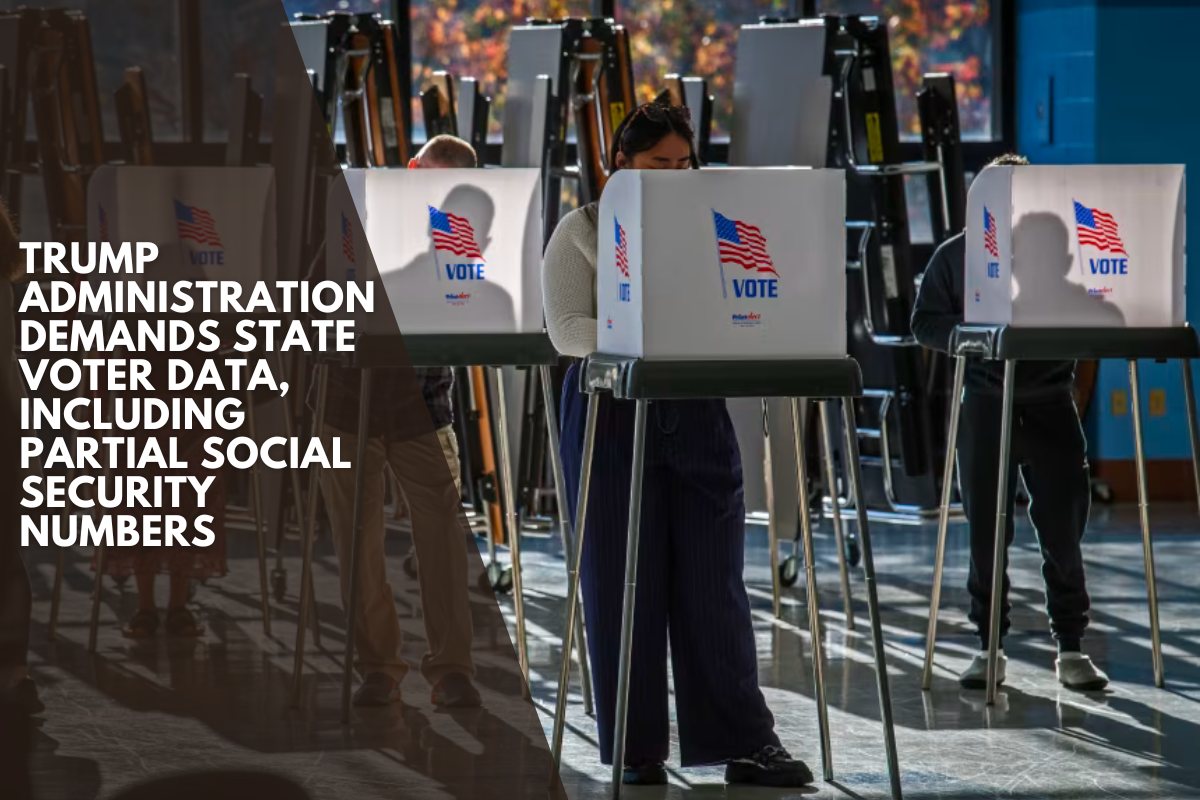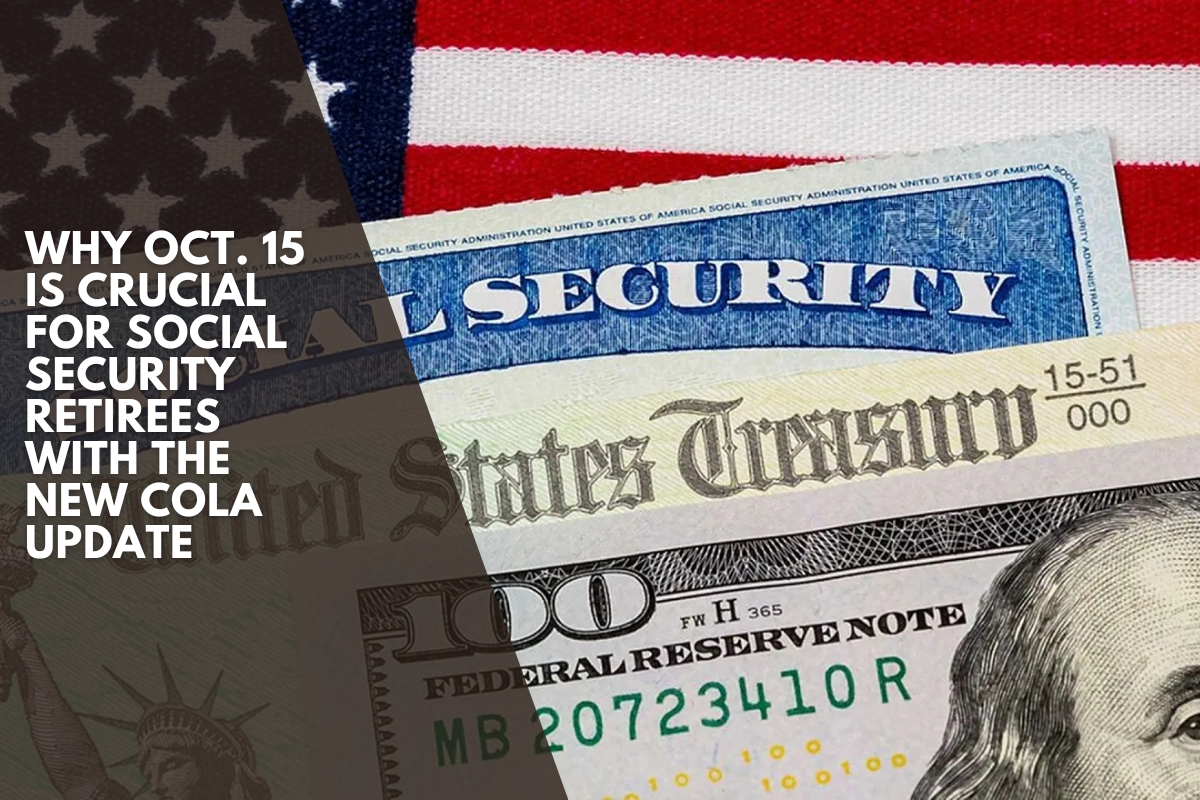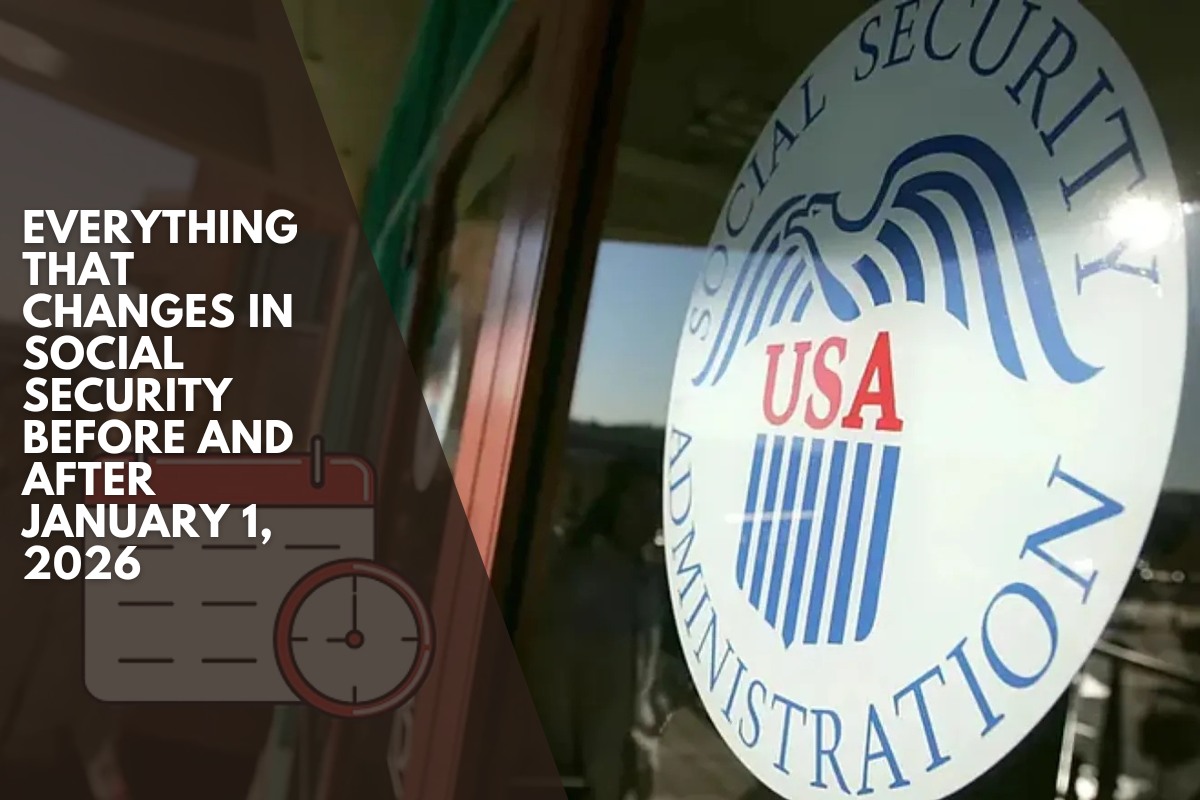The Trump administration has increased its efforts to obtain personal information about tens of millions of voters across the country, including sensitive data such as partial Social Security numbers.
The push, overseen by the Department of Justice, comes as President Donald Trump asserts a larger federal role in elections ahead of next year’s midterms, which will determine which party controls Congress during his final two years in office.
In recent weeks, state election officials have received letters from Harmeet Dhillon, the Justice Department’s Civil Rights Division chief, requesting unredacted copies of states’ voter registration databases.
The data includes voters’ names, birth dates, addresses, driver’s license numbers, and the last four digits of their Social Security numbers.
The agency has informed states that the information is required to ensure compliance with a federal law requiring states to keep accurate voter registration rolls.
However, some state officials who have received the missives argue that the Justice Department is overstepping its authority, pointing out that states, not the federal government, run elections and maintain voter rolls. Election officials in several states have refused to comply with the demands, citing the need to protect voters’ privacy.
“We’re going to fight as far as we have to against this,” Arizona Secretary of State Adrian Fontes, a Democrat, told CNN in an interview. “I will not give up my voters’ personal identifying information. It’s simply not going to happen.
State officials, such as Fontes, claim they already have procedures in place to review the accuracy of their voting lists on an ongoing basis.
Any dataset on voters that states may send to the federal government would only provide a snapshot in time of a state’s voting population, and the information would quickly become out of date, he added.
In Pennsylvania, Al Schmidt, the state’s top election official, has also declined to share voters’ sensitive personal information. In a letter to Dhillon, Schmidt described the DOJ’s request as a “concerning attempt to expand the federal government’s role in our country’s electoral process.”
In addition to Arizona and Pennsylvania, election chiefs in California, Illinois, Maine, Minnesota, and Oregon have received recent data requests from the Justice Department, according to state officials.
Michael Kang, an election law expert at Northwestern University, questions why the Justice Department requires the information it seeks.
“I don’t think you need people’s Social Security numbers for voter-list maintenance oversight,” he told me.
DOJ officials did not respond to questions. In a previous statement to CNN, Dhillon stated that her division has a “statutory mandate to enforce our federal voting rights laws.”
“Clean voter rolls and basic election safeguards are requisites for free, fair, and transparent elections,” she had stated at that time.
The letters test what federal law requires of states
According to federal law, the Justice Department is responsible for ensuring that states have procedures in place to maintain voter rolls and remove those who have died, moved, or are otherwise ineligible to vote where they are registered. The law does not specifically grant the DOJ authority to manage the lists.
Dhillon’s letters also cite a 1960 federal civil rights law that grants the Justice Department broad authority to inspect election records.
Some Democratic officials believe the new requests are intended to advance claims of voter fraud in upcoming elections.
“They are looking, essentially, to say that, ‘Well, we found somebody who died who’s still on the rolls, so there’s fraud, and therefore these elections are fraudulent and should be overturned,'” Illinois Gov. JB Pritzker told reporters recently, according to Capitol News Illinois.
According to a tracker maintained by the liberal-leaning Brennan Center for Justice at New York University’s law school, the Justice Department has contacted at least 26 states since May, seeking a wide range of information, including voter rolls and the identities of election officials in charge of maintaining them.
In response to earlier DOJ requests for voter data this summer, election officials in several states provided information that was generally available to the public or political committees while removing sensitive personal information about individual voters.
The new letters from Dhillon make it clear that the DOJ wants states to provide “all fields” – including personal information – in their voter registration datasets to the federal government.
According to Maria Benson, spokesperson for the National Association of Secretaries of State, the DOJ intends to reach out to all 50 states.
“Americans should be very concerned” about the agency’s actions, said David Becker, executive director of the nonprofit Center for Election Innovation & Research and a former Justice Department voting rights lawyer.
“The DOJ is asking states to take this data, which they are charged under federal and state law with protecting, and hand it over for unclear reasons and with no clear indications of how it will be used,” Becker told reporters.
Justin Riemer, a veteran Republican election lawyer who runs Restoring Integrity and Trust in Elections, stated that the Justice Department “has every right to enforce federal voting laws,” and that obtaining access to the complete voter rolls is one way to do so.
“I’m not 100% sure you can determine whether or not a state is following laws to remove ineligible voters and keep the voter rolls current without actually reviewing the contents of voter registration lists,” he told me.
J. Christian Adams is the president and general counsel of the conservative Public Interest Legal Foundation, which has repeatedly questioned the accuracy of state voter rolls. Adams referred to the opposition to the federal requests as a manifestation of “Trump derangement syndrome.”
“The Attorney General has the power to say, ‘Show me your work,'” he said on CNN. “This is not a close call.”
Trump is ramping up pressure on election officials ahead of the midterms
Trump has moved to insert himself into elections, falsely asserting that states must obey his orders despite the Constitution not giving the president any explicit authority to regulate elections.
“They must do what the Federal Government, as represented by the President of the United States, tells them, FOR THE GOOD OF OUR COUNTRY, to do,” he wrote in a recent post on Truth Social.
A Trump executive order issued earlier this year directed the Department of Government Efficiency to assist in a review of state voter rolls to identify potential noncitizens.
The directive, which also requires proof of citizenship to register to vote, is facing several legal challenges, with parts of it temporarily blocked by courts. Over the weekend, Trump announced that he would sign an executive order requiring voter identification in elections.
He has also attempted to give his party an advantage in next year’s midterm elections by urging GOP-controlled states to redraw congressional maps to gain more US House seats for Republicans.
Missouri will hold a special legislative session beginning Wednesday to target one of the state’s two Democratic-held seats. Texas has already approved a new map, which will likely give Republicans five more seats.
The dispute over access to voter data is likely to end in court. The Justice Department decided to sue Orange County, California, as part of a federal investigation into alleged non-citizen voting. Orange County officials have so far refused to share the individuals’ personal information with the DOJ without a court order.
In Minnesota, Democratic Secretary of State Steve Simon has refused to share voters’ personal information.
A group of Republican state lawmakers on an elections panel recently urged Simon to reconsider, claiming he is preparing the state for “costly” litigation with the federal government.
Simon stated that he will not back down and is confident Minnesota will win in court.
“I don’t have a sense at this point what the Justice Department really wants and aims to do with this data,” according to him. “A reasonable person could conclude that the stated reason they want the information isn’t the real reason they want the information.”












